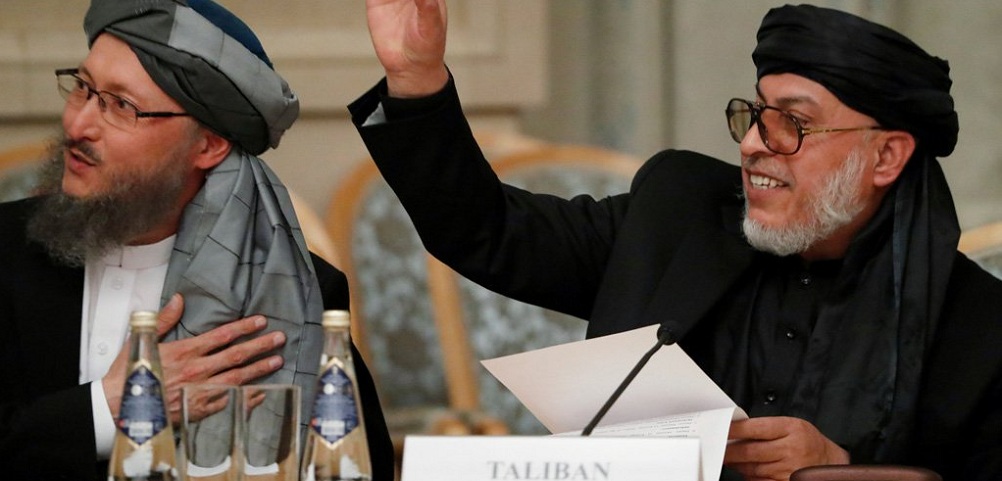Alwaght- President Donald has recently announced that he withdraw half of his US forces from Afghanistan, shortly after he said he will pull out troops from Syria. The orders, which met many reactions inside the US and outside it, opened the door to a variety of speculations about the real intention behind the troops' withdrawal.
The plan to get out of Afghanistan 7,000 American forces comes while the clashes between the government forces and Taliban militants have been on the rise over the past few months and the new US envoy to Afghanistan Zalmay Khalilzad has been working hard to arrange negotiations between Kabul and the Taliban. What are the goals and results of getting 7,000 troops out of Syria? Alwaght has talked to the Afghanistan affairs expert Pir Mohammad Molazehi to get answers to the question.
Preparing the ground for Kabul-Taliban negotiations
Mr Molazehi first commented on the main goals behind Trump's Afghanistan pullout plan, saying that when Americans and the Taliban negotiated in Abu Dhabi in association with the UAE, Pakistan, and Saudi Arabia, the militant group mainly stipulated that if Washington wanted serious Taliban-Kabul talks, the US and NATO forces should leave Afghanistan. So, during the Abu Dhabi process, the Afghan government’s delegation that traveled to the UAE could not meet with the Taliban delegation.
“It appears that Mr Khalilzad has reached an agreement with the Taliban to gradually prepare Taliban for launching talks with Kabul in exchange for the US partial withdrawal from Afghanistan. So, it seems that a deal has been sealed between the US and the Taliban and the Americans are preparing the ground for more serious negotiations to sustain with the presence of the Afghan government.”
The Iranian politician expert, however, did not tie all drives behind Trump's decision to the Taliban negotiations. Rather, he also linked the decision to the US domestic political atmosphere. He continued that during his presidential campaign, Trump repeatedly asked why the US should spend hugely and sustain human tolls as a result of its military interventions across the world. In his speeches, Trump argued that each country should itself pay for and be in charge of its own security.
“In addition to Afghanistan, Trump is removing his forces from Syria in order to save his votes for the next presidential election and put an end to the further waste of military and economic resources.”
The US seeks tensions management, remaining in Afghanistan
Mr Molazehi further told Alwaght that he believed that the American partial withdrawal from Afghanistan should not be read as the failure of the American strategy in Central Asian country. Because the defeat of the Taliban has not been the major aim behind the US military deployment to Afghanistan and keeping it under occupation to date bears witness to this claim.
“The US goal is staying in Afghanistan and for this end it needs a controlled degree of the Taliban-caused tensions. We are now observing a type of tensions management in Afghanistan by the Americans based on which neither the Taliban are allowed to militarily overrun the capital Kabul and topple the government nor the central government is able to defeat the Taliban. So, we should not think that the US has fully failed to achieve its goals in Afghanistan and is leaving the country like the Soviet Union, neither does it mean a victory for the US.”
Reducing Afghan government reliance on foreign forces for security
The Iranian expert then focused on the possible repercussions that the Trump exit decision will have on Afghanistan, saying that the first thing that now Kabul has come up with is that it should not count on the foreign forces’ long-term support, and should bolster its army and police forces.
“It seems that the decision will have serious repercussions in the future. AOver the past few days, two important ministers, minister of interior and minister of defense, were replaced with two anti-Taliban and anti-Pakistan figures. In fact, it looks that Afghans from now on will work harder to strengthen their security and military forces especially that the Americans for some time only remained inside their military bases and did not effectively engage in the fight and Afghans are leading the anti-Taliban war by themselves.
Taliban power gain serves Pakistan, Saudi Arabia, and UAE interests
In the last part of his comments, Mr Molazehi pointed to the outcomes of the US measures in Afghanistan. Regarding cutting number of US forces effects on regional and international players, the expert said if the Taliban under a deal with the Americans get 13 Pashtun-majority provinces bordering Iran and also hold a number of ministries in the government, Pakistan that has bonds to the militant group will meet part of its demands. But Taliban's power gain that means undermined role of the ethnic groups like the Hazaras, Tajiks, Uzbeks, and the former mujahedeen, all of whom coordinated with Iran, will be a blow to Tehran's interests.
Regarding the US partial pullout plan's impact on non-neighbor players, the expert said "countries such as Pakistan, Saudi Arabia, and the UAE will get better positions than others like Iran, Russia, and China.”



























